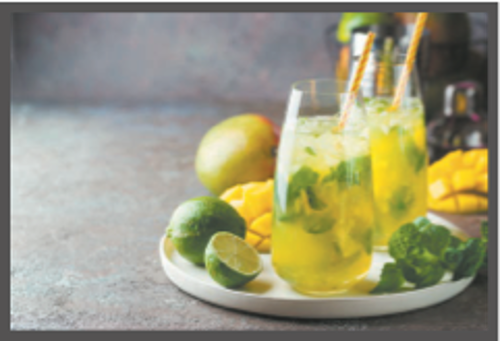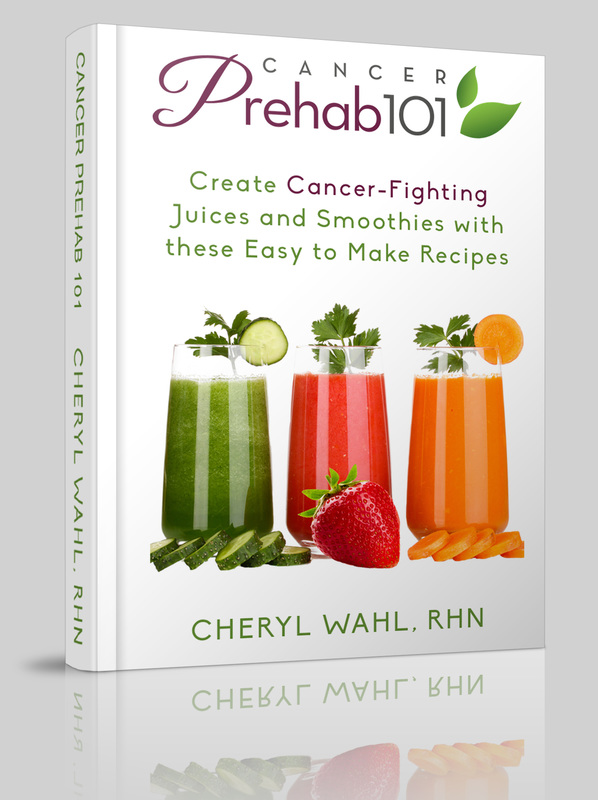|
They’re a staple at the Holiday dinner table and you either love them or leave them. I have always LOVED them. I would even offer to clear the table after dinner so I could munch on them as I was helping. I see now that I was on to something, and they’re not just for the Holidays!
Brussels sprouts are part of a group of foods called cruciferous vegetables, from the brassica family. Also included in this group are arugula, bok choy, broccoli, cabbage, cauliflower, collard greens, kale (one of my favourites), radishes, and turnips. They are rich in nutrients such as carotenoids (beta-carotene, lutein, zeaxanthin), vitamins C, E, and K, folate and minerals. They are also high in fiber. Of particular interest, they contain a group of chemicals, known for their cancer fighting compounds, called glucosinolates. Indole-3-carbinol and sulforaphane, two types of glucosinolates, are most commonly studied for their anticancer effects. They may help:
With all these cancer-fighting properties, why wouldn’t you include them in your daily healthy eating regime. And while you’re giving your body a fighting chance against cancer, you’re boosting your immune system, cleansing and detoxing, and getting a much-needed dose of vitamins and minerals. In good health, Cheryl
0 Comments
October, or the beginning of fall, is such a beautiful time of year, especially this year, as we continue to bask in the warmth of sunshine. It is also a time of year to stop and reflect on what we are thankful, or grateful, for.
A couple of weeks ago, on Truth and Reconciliation Day, I was listening to the radio and heard an elder speak about a topic that really resonated with me. He spoke about appreciating Mother Earth. He asked us all to take a moment and reflect on what she provides to us. The trees, which provide oxygen for us to breathe. The crops that grow and give us food to eat. And what do all these need to survive so we, as a human race, can grow and thrive? Water…rain… I have been absolutely loving the extra days of sunshine and warmth but when I heard him talk about how important water is to life, I stopped, and really thought about it. Our bodies are made up of more than 70% water. The blood that flows through our veins, our organs, our muscles. So when it starts to rain, which it will, let’s take a moment to be thankful for the rain, for all that Mother Earth provides for us. Fresh fruit does seem synonymous with summer, doesn’t it? So let’s indulge while they’re in season and enjoy some health benefits too. Here’s some refreshing and healthy drink and desert recipes to cool you down during the summer heat. Watermelon – not only a wonderfully hydrating fruit but high in lycopene, which is beneficial for protecting against prostate cancer Raspberries and oranges – 1 cup contains over 140% of our daily vitamin C requirements, powerful immune boosting fruits Mango – rich in beta-carotene, an antioxidant that has been shown to fight free radicals, protecting your cells from damage which could lead to cancer Peach – not only is it high in vitamin C but also vitamin A, which helps your immune system. It is also a great source of potassium, which assists with blood pressure regulation Mango Mojito 1 mango – diced 12 sprigs mint 32 oz sparkling water 1 lime, sliced into wedges Add mango and mint to a blender under well incorporated. Divide among 4 glasses, top with ice, sparkling water and a squeeze of fresh lime. Put the fruits of choice into a blender and puree until smooth. Pour into popsicle molds and freeze until solid, at least 4 hours
Mango-orange-peach popsicle 1 ½ cups fresh mango – chopped 1 cup fresh peaches – chopped ½ cup fresh squeezed OJ Watermelon-mint-lime 2 ½ cups watermelon – chopped 2 tsp fresh mint 2 tsp fresh lime juice In good (and keeping cool) health, Cheryl With Father’s Day fast approaching, if you’re like me, you’re planning a BBQ dinner to celebrate the day and honor, or remember, your Father or Father-figure in your life.
While BBQing your meat is a fast, easy and tasty way to prepare a meal, there are a few things to be mindful of to keep yourself healthy. Consuming char broiled and well-done meat has been linked to an increased risk in cancer, specifically prostate cancer risk. Why you ask? Cooking meat at high temperatures creates chemicals called HCA’s (heterocyclic amines) and PAA’s (polycyclic aromatic hydracarbons). These 2 substances are known carcinogens that can cause changes in DNA and possibly lead to cancer. No need to panic. You don’t need to give up your favorite BBQ meals just yet as there are several things you can do to minimize the formation of HCA’s in your meat.
Perfect Summertime BBQ Marinade Recipe 1/3 cup coconut sugar (packed) 6 TBSP grapeseed oil or olive oil 4 tbsp apple cider vinegar 3 garlic cloves (crushed) 3 tbsp mustard (grainy) 4 TBSP lemon juice Directions Mix all ingredients in a large bowl and add the meat of your choice; coat all sides. Marinate for a minimum of 10 minutes. You may soak longer to intensify the flavors but research shows that longer marinating times do not increase the anti-cancer benefits. Remove meat from marinade and place on hot grill. Grill times are different depending on the type of meat you are cooking. Remove meat from grill as soon as it's done and serve with colorful, anti-oxidant rich salads. In good health, Cheryl The development of drugs in the past 100 years have revolutionized health care and the way we treat major diseases. However, there are still many countries that rely on herbal medicines and traditional practitioners for their primary care. 70% of the population in India and 40% in China depend on traditional medicines to help meet their health care needs. It is increasing in popularity in the rest of the world too. According to stats Canada, in 2016, 21% of Canadians are using herbal remedies and the Fraser Institute reports that over $8 billion was spent on complementary and alternative medicine in the same year. So, what herbs and spices are already in your kitchen that you can add to your meals for flavour and added health benefits? Basil and Oregano – contain phytonutrients that act as antibacterial agents, and are loaded with antioxidants, preventing cellular damage Dandelion - yes, those ‘weeds’ that we see at this time of year have antioxidant properties and can help reduce inflammation. Add the leaves to salads or sauté with other greens Dill - packed with flavonoids, which has been shown to reduce the risk of heart disease and stroke and reduce levels of LDL (the ‘bad’ cholesterol) Garlic and Chives - these are part of the allium family. Epidemiological studies have shown that the organosulfur compounds in allium products have been associated with a reduced risk of certain types of cancers Ginger - may inhibit tumour cell growth and is useful in reducing nausea, a common side effect of some types of cancer treatments Rosemary - has high antioxidant properties and is very helpful in reducing the carcinogenic effect of charred meat due to grilling Dried herbs are great but why not start a fresh herb garden. You can enhance the flavour of your food by sprinkling them on veggies, mix them in your soups and stews, marinade meats before BBQing and make your own salad dressings. The possibilities are endless. A note of caution: some herbal supplements can have contraindications with certain prescription drugs. Please check with your pharmacist before taking herbal supplements. In good health, Cheryl That is an age-old question and one that I’ve never been able to figure out, but what I do know is how delicious eggs are and they are quite the perfect little food.
At only 72 calories per egg, it is packed with nutrients, and for about 30 cents per egg, it is a good bang for your buck. One egg has over 6g of protein, including all 9 essential amino acids. Amino acids are the building blocks of our body. There are 20 of them in total but these essential ones are the amino acids your body can’t make and are vital for energy production, muscle growth, fat metabolism, immune system function, and many other important jobs. Eggs are high in vitamins and minerals like vitamin B12, riboflavin and folate. They also contain vitamins A, D, phosphorus, zinc and selenium. They do get a bad rap for raising ‘bad’ cholesterol, LDL, but eggs also raise your ‘good’ cholesterol, HDL. HDL actually helps to remove LDL from your bloodstream and can lower your risk for heart disease and stroke. Eggs are also good for eye health. They contain lutein and zeaxanthin which helps prevent cataracts and age-related macular degeneration. Green leafy vegetables contain these antioxidants as well, however, the fat in the eggs helps your body absorb the nutrients better. You could have a salad with sliced eggs on top for an antioxidant rich lunch or dinner. This incredible food even has its own website. www.eggs.ca. There are so many recipes to choose from but this one caught my eye. It’s easy to prepare a large batch so you can freeze them for grab-and-go meals or snacks anytime. In good health, Cheryl Spring is a time for new growth as the earth awakens from its winter sleep, crocuses and snow drops are peeking up in the gardens. It’s also a time for us to emerge from our winter hibernation.
During the past few months of colder weather, and shorter days, we’ve spent a lot of time indoors being sedentary and eating comfort foods…all the while packing on a few extra pounds of weight. It’s time to get out, get moving, and lighten up the diet a little. It’s time to put the crockpot away and pull out the salad plate and include ‘superfoods’ in your diet daily! What are superfoods? According to the Merriam-Webster dictionary, superfoods are “a super nutrient-dense food, loaded with vitamins, minerals, fiber, antioxidants, and/or phytonutrients”. They have specific health benefits and are a whole food in its natural state. And in the spring, we have some beautiful seasonal superfoods that are growing and ready to eat, and they’re mostly green. Salad greens like arugula, mustard and turnip greens, spinach, leeks, asparagus and artichokes. What are the big health benefits of these delicious green veggies?
In good health, Cheryl Wahl, RHN, Cancer Coach February is heart health month and cardiovascular disease is a leading cause of death for both men and women. The more risk factors you have, the greater your risk. Some of those risk factors are high blood pressure and cholesterol, diabetes, overweight, excess alcohol consumption and physical inactivity.
Heart disease and stroke can be reduced by up to 80% by making healthy changes such as eating healthy, keeping a healthy weight, staying active and reducing your stress. Is this advice sounding familiar? It’s also the advice to follow to reduce your risk of cancer. Numerous studies have shown that a Mediterranean diet can promote weight loss, regulate blood sugar levels and benefit heart health, which lowers your risk of heart disease and stroke. How do you follow a Mediterranean diet? It’s actually pretty simple. It focuses more on plant-based foods such as vegetables and fruits, whole grains, legumes, nuts, seeds and healthy fats. Encourages fish and seafood, which are rich in omega-3 fatty acids. And cuts back on red meat, added sugars and processed foods. Here’s some suggestions to get you started:
And what does a typical day look like? Breakfast
In good health, Cheryl Wahl, RHN, Cancer Coach  Trust me when I say I know what it’s like. I remember thinking, “I’m NEVER going to lose this weight!” I was so fixated on the number on the scale, and that only kept me frustrated, discouraged, and worst of all STUCK. I finally took a step back and realized I needed to change my mindset and my focus if I ever wanted to move forward. YES, I wanted to lose the weight I had gained, but the most important thing for me was to be healthier and feel better. I knew a quick fix was not the answer because I didn't just want to lose the weight – I wanted to keep it off, so I didn’t have to focus on losing the weight ever again. I knew it needed to be a lifestyle change. I wanted to look and feel healthier, not just be thinner. There are many reasons for hitting a plateau or getting off to a slower start than we'd like. Everyone is different at the rate they lose weight and where they lose it, and it’s really easy to get discouraged. The bottom line is that if you continue to keep your new healthy habits in place, you WILL see results. Most people get discouraged and give up too soon – before they ever have a chance to see the results they want. "I just can't lose weight" or "I'll never reach my goal weight" are things we tell ourselves. But it's not true – we just tend to give up when it doesn't happen within our desired time frame. If you can change your focus to getting healthier, making better food choices and exercising smarter, you will do more for yourself than obsessing over the number on the scale. For example, if you aren’t getting enough sleep, have a high level of stress, and you’re eating a fair share of processed foods, you’re going to have an uphill battle losing weight. By addressing it from a ‘taking better care of yourself’ perspective, the rest tends to fall into place. Because while we can't always control the number on the scale we CAN control how we take care of ourselves. In the long run, this is much more important in order to have a healthy, happy life. Here are 6 strategies that can help you bust through your plateau:
Bonus Tip: Hydrate! Be sure you’re drinking plenty of water every day. Water helps with digestion and elimination. Water intake is an important element of our overall health, and it can be helpful for weight loss too. If you’re feeling a little discouraged, focus on the positive and how you’re making better choices. Do the best you can for your health each day and you WILL see and feel changes. Be patient and just keep moving forward, one healthy choice at a time. Slow and steady is the way to go for long-term success. There could be other underlying conditions including hormonal imbalances that can hinder weight loss, so it’s a good idea to seek a health care practitioner that deals with this, such as your physician, naturopathic doctor or functional medical doctor. Promise yourself you are not going to give up...you are in this for the long haul, and you’re worth it! And if you need assistance and/or accountability, I am here to help. The programs I have put my clients through have helped them lose weight, gain energy and feel better. Email me for a free 30 minute consultation, your future self will thank you. Cheers, Cheryl It's spring, such a welcome time of year, and you've probably said it, "I need to do some spring cleaning".
It's not just the house that needs to be aired out and cleaned up but we do too. After a winter slumber, where we ate lots of comfort foods and probably exercised less (after all, who wants to get outside when it's freezing cold and wet), spring is the perfect time to start shedding those pounds we put on and giving our body a spring clean. Every toxin you come into contact with must be filtered through the liver. That includes herbicides and pesticides from our food, the air we breathe, the body care products we put on our skin and hair and that glass of wine we love so much. The liver is the second largest organ in our body and it is also the most overworked. Given that we now understand the degree to which we are exposed to toxins on a daily basis, it is easy to see how our livers are being put into overdrive. When the liver becomes overburdened, it loses its ability to function efficiently. This leads to a cascade of potentially serious health consequences and uncomfortable reactions. I've got a few questions to ask you: Do you wake up at night? If you wake up consistently between 1:00am and 3:00am, your liver may be asking for some support. While we sleep, the liver becomes more active and works on cleansing and detoxification. Waking up around this “liver time” can signal that the liver is exhibiting signs of toxicity and needs some cleansing. Many times this happens from eating either too much sugar in the evening or animal protein. Eye problems? Conjunctivitis, lots of mucus, itching, macular degeneration, dry eyes, and cataracts indicate liver weakness. Another physical clue is a vertical line between the eyebrows. Skin problems? Eczema, psoriasis, rosacea, skin rashes, acne and dry skin are clues. Angry emotions? If the liver is congested and being forced to work too hard, it becomes “hot,” causing excessive anger and irritation. Hormonal imbalances? PMS, hot flashes, and pre-menopausal symptoms are increased due to a congested liver. Constipation? This condition can often be caused by a congested and toxic liver or even stressed adrenals. The colon should still be addressed, but it is often not the root cause. So, what do we do to help our overburdened liver (this is taken from my Spring Detox Program)?
If you want to know more about my Spring Detox Program, send me an email to [email protected]. In good health, Cheryl |
Want to reduce your risk of cancer, receive recipes and health information regularly straight to your in-box? Download your free copy now.
Archives
December 2022
Categories |




